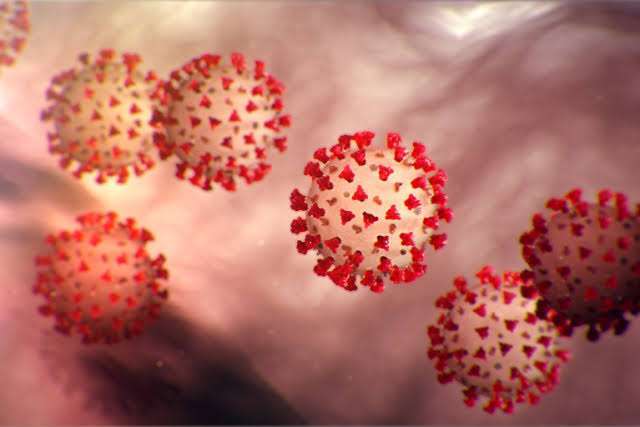Latest News
- Kuwait Halts Work Permits For Egyptian Workers Amidst New Regula...
- Kuwait Weather Advisory: Strong Northwesterly Winds And Dust Ex...
- Kuwaiti MPs Express Concerns Over Halted Development Projects Am...
- Syrian Expat Teacher Detained For Allegedly Threatening Students...
- 10 Infrastructure Projects Nearing Completion In Three Growing C...
- Kuwaiti Amir Sheikh Mishal Al-Ahmad Al-Jaber Al-Sabah Receives A...
- Kuwaiti Amir And Jordanian King Discuss Bilateral Ties At Basman...
- Internet Censorship Pact Condemned By MP-elect Bushehri
- Police Arrest Two Men Previously Convicted In Misdemeanor Cases
- The Theft Of 50 Birds In Kuwait’s Barr Abdaliyah Area
- Anti-Corruption Authority Efforts Embrace An Integrated Work Sys...
- European Union Keen On Exempting Kuwaitis From Schengen Visa
Detection Of Coronavirus Antibodies Using A New Method

COVID-19 is no longer a global threat in spite of significant and impressive advances in vaccine technology. Identifying those with severe acute respiratory syndrome Coronavirus 2 (SARS-CoV-2) is critical to limiting its spread. Using an antibody-based detection method, Japanese researchers developed a rapid and reliable way to detect SARS-CoV-2 without collecting blood samples.
Global response to the COVID-19 pandemic has been severely limited by ineffective identification of SARS-CoV-2-infected individuals, and the high rate of asymptomatic infections (16 percent to 38 percent) has only exacerbated this issue. Up to this point, most detection methods involve swabbing the nose and throat with a cotton swab. Nonetheless, the application of this method is limited by its long detection time (4-6 hours), high cost, and requirement for specialized equipment and medical personnel, especially in countries with limited resources.
A complementary and alternative means of confirming COVID-19 infection involves the detection of SARS-CoV-2-specific antibodies. In many countries, testing strips based on gold nanoparticles are used for point-of-care testing. Results are available within 10-20 minutes, but blood samples must be collected by using a lancing device on a finger prick. In addition to being painful, this increases the risk of infection and cross-contamination, and the kit components present a biohazard risk.
Leilei Bao from the Institute of Industrial Science, University of Tokyo, explains: "We explored the possibility of sampling and testing interstitial fluid (ISF), which is in the epidermis and dermis layers of human skin. Despite the antibody levels in the ISF being around 15%-25% of those in blood, we experimentally confirmed this method of non-invasive detection, and that ISF could substitute for blood sampling for the detection of anti-SARS-CoV-2 IgM/IgG antibodies."
In order to sample and test the ISF, the researchers developed an innovative approach after demonstrating that ISF can be used for antibody detection. In the first step, we developed biodegradable porous microneedles made of polylactic acid to extract the ISF from human skin, says senior author Beomjoon Kim. Our next step was to construct a paper-based immunoassay biosensor for the detection of SARS-CoV-2-specific antibodies. By combining these two elements, the researchers created a compact patch that can detect the antibodies on-site within 3 minutes (results from in vitro testing).
With this new detection device, patients will be able to obtain rapid screening for COVID-19 and many other infectious diseases in a safe and comfortable manner. A key goal of managing infectious diseases globally is to use this technology in as many countries as possible, regardless of wealth.
Trending News
-
 Kuwait Implements Home Biometrics Services Ahead O...
14 April 2024
Kuwait Implements Home Biometrics Services Ahead O...
14 April 2024 -
 Kuwait Airways Provides Update On Flight Schedule...
14 April 2024
Kuwait Airways Provides Update On Flight Schedule...
14 April 2024 -
 Kuwait Airways Introduces Convenient Home Luggage...
15 April 2024
Kuwait Airways Introduces Convenient Home Luggage...
15 April 2024 -
 Expat Residency Law Amended By Kuwait Ministerial...
20 April 2024
Expat Residency Law Amended By Kuwait Ministerial...
20 April 2024 -
 Gathering For Eid Al-Fitr Prayers: Kuwaiti Citizen...
10 April 2024
Gathering For Eid Al-Fitr Prayers: Kuwaiti Citizen...
10 April 2024 -
 Two Expats Are Arrested For Stealing From Salmiya...
17 April 2024
Two Expats Are Arrested For Stealing From Salmiya...
17 April 2024 -
 An Egyptian Expat Dies At Kuwait's Airport
11 April 2024
An Egyptian Expat Dies At Kuwait's Airport
11 April 2024 -
 Bay Zero Water Park Kuwait: Summer Season Opens Ei...
11 April 2024
Bay Zero Water Park Kuwait: Summer Season Opens Ei...
11 April 2024 -
 Temperature Increases Cause Electricity Load Index...
21 April 2024
Temperature Increases Cause Electricity Load Index...
21 April 2024 -
 Kuwait Airways Resumes Flights To Beirut And Oman...
15 April 2024
Kuwait Airways Resumes Flights To Beirut And Oman...
15 April 2024












Comments Post Comment